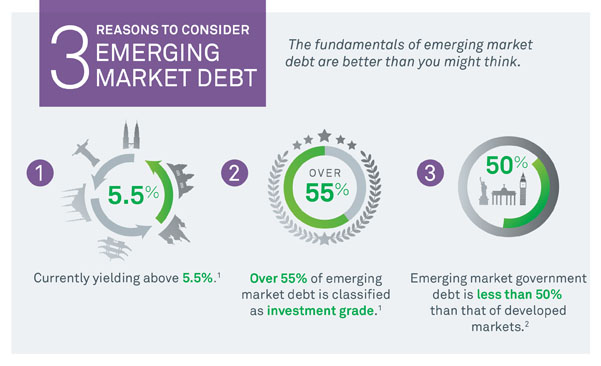
A private real estate investment trust (REIT), is a great way of investing in real estate properties. However, you should consider your investment strategy, your risk tolerance, and your investment time horizon. Both public and private REITs have their advantages and disadvantages. There are benefits to both but investing in a REIT public may be a better option.
Publicly traded REITs may be bought quickly and easily. They offer liquidity. They can be bought and sold at anytime during the exchange's open hours. They have higher growth potential and dividend payouts. Public REITs often have more skilled management teams, which can offer investors an advantage.
Private REITs, by contrast, are not publicly traded so are not subjected to the same regulatory oversight. They are generally exempted from the SEC registration requirements and Regulation D requirements. There are several exemptions that allow for private REIT shares to be issued, and there are also some regulatory restrictions that apply to these securities. To fully appreciate the risks of investing these non-publicly traded securities, you will need to be an experienced investor.

Private REITs may only be sold to accredited investors. These investors must meet certain income requirements and net worth. Private REIT investors need to have at the very least $1 million of investable assets, and at least $200,000 in annual income to be eligible to invest in them.
Private REITs are able to pay out higher dividends than publicly traded trusts. This protects their investors from market downturns. However, some private REITs may not have the cash flow to pay out dividends. Investors could be exposed to tax liabilities. In addition, private REITs can have a high upfront fee. This is used to cover expenses related to marketing and sales commissions. This fee could be between 1% and 12%.
Private REITs are typically managed by a registered investment advisor. They charge small fees to manage assets. They also charge a performance-management fee that is a portion of the total equity returns. The management fee is typically higher than the management fees charged by public REITs.
Private REITs typically are sold through financial advisors. The broker dealer receives a generous fee structure. It is vital to choose the right advisor. The advisor will help you assess the risks and potential opportunities associated with private REITs.

Private REITs can also be difficult to liquidate, compared to publicly traded REITs. For your shares to be redeemed, you may need to pay a fee. Private REITs will often require that your shares are held for a set period. This can be difficult if the market is volatile. You should take a good look at your prospectus to see what fees you may incur.
FAQ
What are the benefits of stock ownership?
Stocks have a higher volatility than bonds. If a company goes under, its shares' value will drop dramatically.
But, shares will increase if the company grows.
Companies often issue new stock to raise capital. This allows investors to buy more shares in the company.
Companies can borrow money through debt finance. This allows them to borrow money cheaply, which allows them more growth.
People will purchase a product that is good if it's a quality product. The stock's price will rise as more people demand it.
The stock price will continue to rise as long that the company continues to make products that people like.
What is a mutual-fund?
Mutual funds are pools that hold money and invest in securities. They provide diversification so that all types of investments are represented in the pool. This helps to reduce risk.
Professional managers manage mutual funds and make investment decisions. Some mutual funds allow investors to manage their portfolios.
Mutual funds are preferable to individual stocks for their simplicity and lower risk.
How do I choose a good investment company?
Look for one that charges competitive fees, offers high-quality management and has a diverse portfolio. Commonly, fees are charged depending on the security that you hold in your account. Some companies charge no fees for holding cash and others charge a flat fee per year regardless of the amount you deposit. Others charge a percentage based on your total assets.
Also, find out about their past performance records. Poor track records may mean that a company is not suitable for you. Companies with low net asset values (NAVs) or extremely volatile NAVs should be avoided.
You also need to verify their investment philosophy. An investment company should be willing to take risks in order to achieve higher returns. If they're unwilling to take these risks, they might not be capable of meeting your expectations.
What is the purpose of the Securities and Exchange Commission
SEC regulates brokerage-dealers, securities exchanges, investment firms, and any other entities involved with the distribution of securities. It enforces federal securities regulations.
Statistics
- Individuals with very limited financial experience are either terrified by horror stories of average investors losing 50% of their portfolio value or are beguiled by "hot tips" that bear the promise of huge rewards but seldom pay off. (investopedia.com)
- US resident who opens a new IBKR Pro individual or joint account receives a 0.25% rate reduction on margin loans. (nerdwallet.com)
- Ratchet down that 10% if you don't yet have a healthy emergency fund and 10% to 15% of your income funneled into a retirement savings account. (nerdwallet.com)
- "If all of your money's in one stock, you could potentially lose 50% of it overnight," Moore says. (nerdwallet.com)
External Links
How To
What are the best ways to invest in bonds?
A bond is an investment fund that you need to purchase. While the interest rates are not high, they return your money at regular intervals. These interest rates can be repaid at regular intervals, which means you will make more money.
There are many ways to invest in bonds.
-
Directly purchase individual bonds
-
Buy shares of a bond funds
-
Investing via a broker/bank
-
Investing through a financial institution
-
Investing in a pension.
-
Invest directly with a stockbroker
-
Investing via a mutual fund
-
Investing through a unit trust.
-
Investing in a policy of life insurance
-
Investing through a private equity fund.
-
Investing with an index-linked mutual fund
-
Investing via a hedge fund